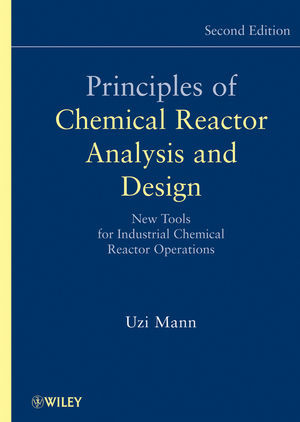

Most ebook files are in PDF format, so you can easily read them using various software such as Foxit Reader or directly on the Google Chrome browser.
Some ebook files are released by publishers in other formats such as .awz, .mobi, .epub, .fb2, etc. You may need to install specific software to read these formats on mobile/PC, such as Calibre.
Please read the tutorial at this link: https://ebookbell.com/faq
We offer FREE conversion to the popular formats you request; however, this may take some time. Therefore, right after payment, please email us, and we will try to provide the service as quickly as possible.
For some exceptional file formats or broken links (if any), please refrain from opening any disputes. Instead, email us first, and we will try to assist within a maximum of 6 hours.
EbookBell Team

4.3
8 reviewsThis text offers a comprehensive, unified methodology to analyze and design chemical reactors, using a reaction-based design formulation rather than the common species-based design formulation. The book's acclaimed approach addresses the weaknesses of current pedagogy by giving readers the knowledge and tools needed to address the technical challenges they will face in practice.
Principles of Chemical Reactor Analysis and Design prepares readers to design and operate real chemical reactors and to troubleshoot any technical problems that may arise. The text's unified methodology is applicable to both single and multiple chemical reactions, to all reactor configurations, and to all forms of rate expression. This text also . . .
Combines all parameters that affect heat transfer into a single dimensionless number that can be estimated a priori.
Accounts for all variations in the heat capacity of the reacting fluid.
Develops a complete framework for economic-based optimization of reactor operations.
Problems at the end of each chapter are categorized by their level of difficulty from one to four, giving readers the opportunity to test and develop their skills.
Graduate and advanced undergraduate chemical engineering students will find that this text's unified approach better prepares them for professional practice by teaching them the actual skills needed to design and analyze chemical reactors.Content:
Chapter 1 Overview of Chemical Reaction Engineering (pages 1–24):
Chapter 2 Stoichiometry (pages 25–79):
Chapter 3 Chemical Kinetics (pages 81–99):
Chapter 4 Species Balances and Design Equations (pages 101–129):
Chapter 5 Energy Balances (pages 131–158):
Chapter 6 Ideal Batch Reactor (pages 159–238):
Chapter 7 Plug?Flow Reactor (pages 239–316):
Chapter 8 Continuous Stirred?Tank Reactor (pages 317–376):
Chapter 9 Other Reactor Configurations (pages 377–439):
Chapter 10 Economic?Based Optimization (pages 441–454):